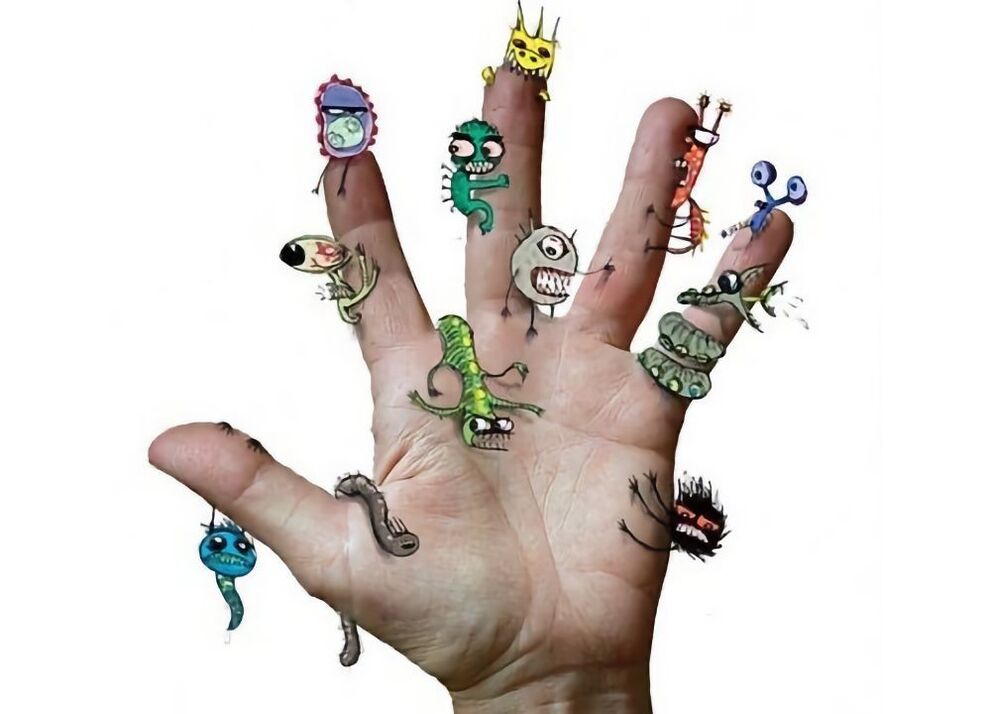
According to WHO, every second person on the planet is infected with helminths each year. Many people think that parasitic worms do not cause much harm to health. However, not everything is so simple: helminths can affect vital internal organs: the heart, lungs and brain.
Worms - who are they?
Helminths are parasitic worms that can choose a human, animal or plant body as a host. There are three types of helminths in total:
- tapeworms. This class includes about 3. 5 thousand species of helminths. The length of the parasitic worms varies from a few millimeters to 10-15 meters;
- flukes.Parasites are so named because they have suckers used to get food. The human body can be infected with about 4 dozen species of flukes. As a rule, the length of the worms does not exceed 5 cm;
- roundworm.This class of helminths has more than 24 thousand species. Roundworms are spindle-shaped. Usually their length is not more than 0. 5 meters.
You can become infected with helminths in many different ways. However, parasite infestations often occur for the following reasons:
- Poor hand hygiene.
- Unwashed vegetables and fruits; undercooked or undercooked meat and fish - the use of such products increases the risk of parasite infestation many times over.
- Keep food outside the refrigerator open. Insects can transfer helminth eggs to products stored without packaging.
- Contact with pets.
The main symptoms of the presence of parasites in the body:
- nausea, vomiting, diarrhea;
- weight loss;
- allergic rash;
- distention;
- itching in the anus;
- teeth grinding in a dream.
Learn more about the signs of parasites in the bodyRead our article.
What types of worms are common in our country? Review of the most common types of parasitic worms and the diseases they cause.
Tapeworms
The body of a tapeworm consists of segments, the total number of which is from 3 to 5000. The main part for fixation of the helminth is the head, the accessory parts are the suckers, hooks.
The most common causes of tapeworms are:
Diphyllobothriasis
The causative agent is a broad tapeworm that affects the human intestinal tract.The development of worm eggs occurs in freshwater. The diagram of the introduction of tapeworms into the human body is as follows:
- Worm eggs are swallowed by crustaceans that live in reservoirs.
- Infected crustaceans are eaten by fish.
- A person becomes infected with parasites from eating fish that have not been heat-treated enough.
Symptoms of the disease develop 1. 5 months after infection. The main sign of pathology is the presence of white helminthic fragments in the stool.
Attaching to the intestinal mucosa, tapeworms absorb large amounts of vitamin B12. For this reason, people with diphyllobothriasis often develop anemia. In addition, tapeworms can cause liver, spleen, intestinal obstruction.
Teniarinhoz
The causative agent is a bovine tapeworm, which mainly lives in the small intestine of humans. During its development cycle, helminths replace two hosts: an intermediate animal, mainly a human. Tapeworms can live in the body for 20 years, multiply and cause harm to health. The disease is common in many areas, but is most common in cold places.
As a rule, people develop taeniarhynchosis after eating undercooked or undercooked beef.
The disease usually progresses without obvious symptoms and is discovered incidentally when a person sees helminthic elements in his stool. In some people, in addition to the main signs of a helminth infection, there may be pain in the right anterior abdominal wall.
Adult helminths can penetrate the appendix, pancreatic duct, biliary tract, causing acute inflammatory processes in them. With multiple parasitic infestations, intestinal obstruction can develop.
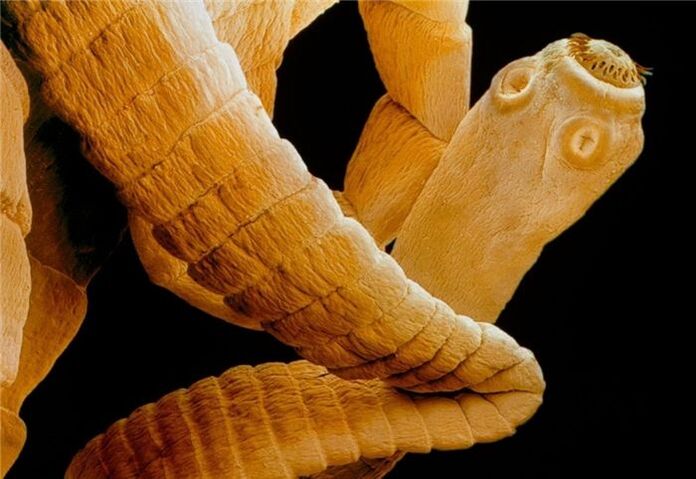
teniasis
The causative agent is the pork tapeworm, which initially affects the small intestine of humans.Infection in humans occurs when raw or improperly cooked pork is eaten.
The parasite can invade various organs and tissues, causing pain in the abdomen, back, and limbs. The most favorable pathology occurs when the worms are localized in subcutaneous fatty tissue and skeletal muscle. When entering the eye muscles, the worms cause vision loss, lacrimation, and photophobia. Beating the brain of a pork tapeworm can be fatal.
fluke
The fluke has a leaf-like appearance and is distinguished by its high reproductive capacity at different stages of the life cycle. Reproduction of worms is not only possible with fertilization, but also without it. In addition to the sucking hairs, the worms also have many hooks and spines, thanks to which they firmly attach to the mucous membranes of the organs.
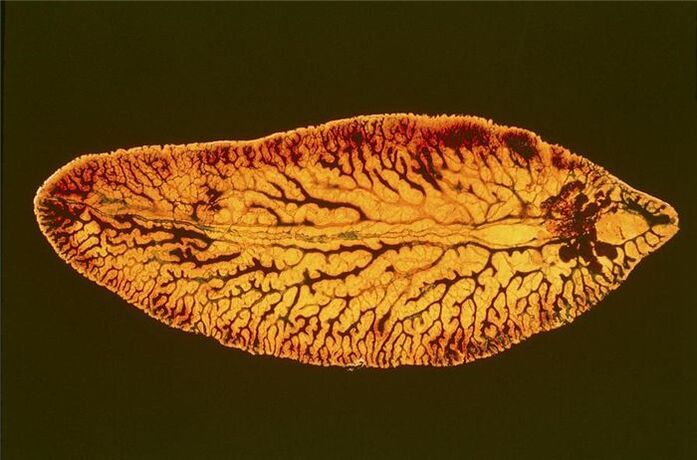
Common diseases caused by flukes:
- fascioliasis;
- eye stone disease;
- paragonimiasis.
Large liver fluke
fascioliasis occurs when the liver or gallbladder is damaged by the liver fluke.Basically, infection occurs when eating vegetables that are irrigated with water from open reservoirs.
In addition to the standard signs of a parasitic infection, a person may experience asthma attacks, which are accompanied by shortness of breath, flushing, dilated pupils, and a rapid heart rate. If an adult has caused a biliary obstruction, then obstructive jaundice will develop. Signs of the disease:
- cramping pain in the right hypogastric region;
- jaundice;
- fever;
- colorless stools.
Opisthorchiasis
The causative agent is the cat tapeworm. The parasite's name is due to the fact that, in addition to humans, it often infects cats and other mammals that eat fish.
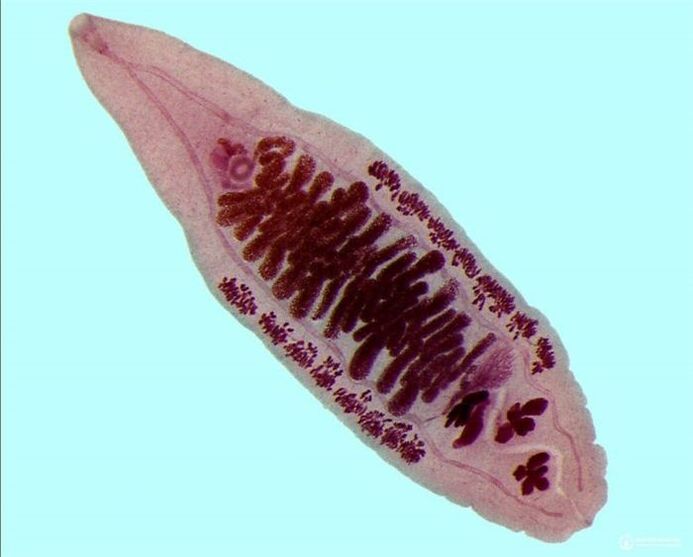
As a rule, cat flukes affect the liver and pancreas, causing inflammation of the organs. Symptoms vary and depend on the number of parasites. Patients may experience:
- symptoms of intoxication;
- fever,
- hives;
- itchy skin;
- pain in muscles, joints, lower right position.
In some cases, helminths cause an increase in the lymph nodes, the development of jaundice. Chronic form of the disease often leads to hepatitis, cirrhosis.
Paragonimiasis
The culprit of the disease is a lung fluke that enters the human body with infected crustaceans.
First, the parasite enters the human intestine, and then into the abdominal cavity. The end point of his journey is lung tissue. In addition, the worm has the ability to penetrate the brain and affect the central nervous system.
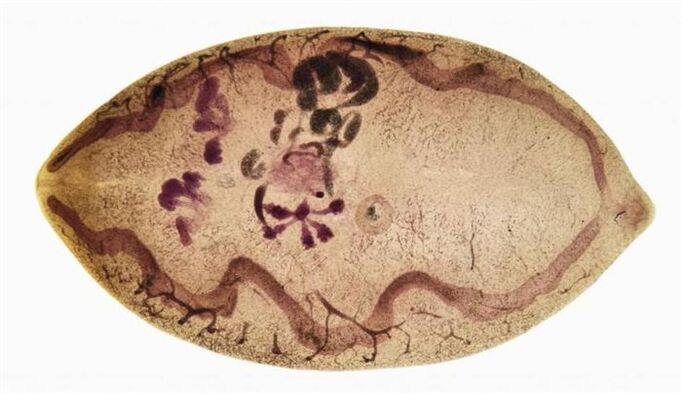
Specific signs of parasite penetration into the lungs:
- pain syndrome in the chest;
- cough with sputum, possibly mixed with pus and blood;
- fever.
In some cases, helminths cause a violation of the ventilation function of the lungs and gas exchange during breathing.
roundworm
Due to their structure, roundworms (nematodes) can survive even in extreme conditions.Their body is covered with a three-layer musculoskeletal sac, which reliably protects the parasite from external influences.
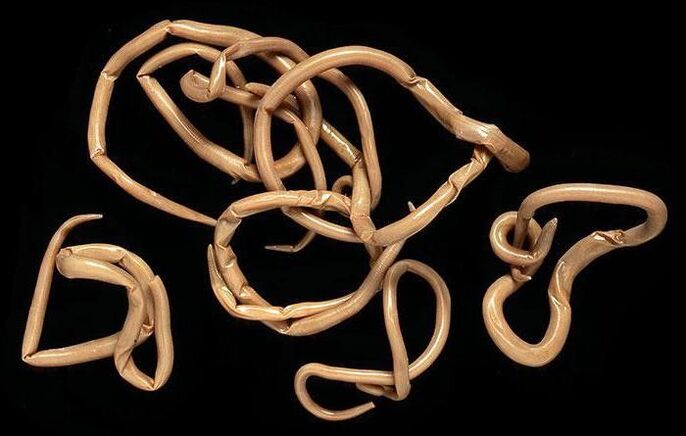
Common diseases caused by nematodes:
- roundworm disease;
- filariasis;
- triad disease.
Roundworm disease
The development of the disease causes roundworms, which are initially fixed in the small intestine. The average length of an adult is 40 cm. Parasitic larvae can enter the human digestive system by unwashed vegetables and contaminated water.In addition, the common cause of ringworm disease is poor hand washing before eating.
During the penetration of the larvae into the body, a person may experience sub-threshold temperature, allergic rash, cough with clear sputum. Signs of the intestinal phase of ascariasis (diarrhea, abdominal pain) are observed only in the presence of certain parasites. As a rule, resident in the intestines of a worm is asymptomatic.
Complications with multiple infestations:
- bile duct obstruction;
- purulent inflammatory processes in the gallbladder, liver;
- appendicitis;
- bowel obstruction.
Enterobiasis
The causative agent is pinworms - small worms up to 1 cm long.Roundworms enter the human digestive system in a similar way to roundworms.
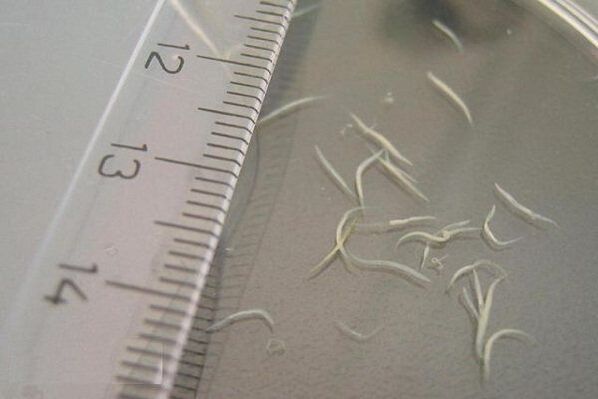
Currently, intestinal worm disease is the most common parasitic disease in the world. Basically, the disease is diagnosed in children under 10 years of age.
Symptoms, as in the previous cases, only develop with multiple invasions of the parasite. Children often have diarrhea, mucus stools, difficult and painful digestion, anal itching, nausea. In severe cases of the disease, leg cramps may occur. In addition, pinworms have the ability to invade the genitals, causing acute infection for children.
Trichinosis
This disease causes Trichinella - one of the smallest parasitic worms. The length of the parasite rarely exceeds 4 mm. In the larval stage, the worm can infect skeletal muscle. The exception is myocardium - the muscle tissue of the heart. Adults parasitize the small intestine.
As a rule, infection in humans occurs when eating semi-roasted pork.At the same time, for the development of the disease, it is enough to consume only 30 g of meat affected by the parasite.
Pathology is manifested by standard symptoms of a parasite infestation. In the severe stage, there may be swelling of the eyelids, face, hands and feet, low back pain, muscle spasms. Possible complications are complete or partial loss of mobility, paralysis of the airways.
How to avoid getting infected with worms?
To reduce the risk of infection with parasitic worms, it is important to observe the following rules:
18 signs of the presence of parasites in the body
Present in the human body, the parasite has a serious effect, causing disease. At the same time, the same parasite can simultaneously exert multiple mechanisms of action on humans.
WHO believes that currently around 4 and a half billion people around the world are regularly affected by different types of parasites.
This issue is also very topical because it is difficult to diagnose parasitic diseases. Worm infestations (a large set of parasitic diseases) are present in humans even after the parasites have left. And if the patient notices this, then in this case he will of course go to the medical facility. Parasites can also be detected during preventive screening. But unfortunately, these cases are a drop of seawater.
Mechanism of action:
mechanical impact.For example, if the roundworm is in the intestines, of course it will compress and damage the intestinal wall. In some cases, causes an inflammatory process. For example, if the echinococcus bacteria is located in the liver, in the lungs, or in the kidney, tissue compression will follow. This is a classic, mechanical effect: outbreak, pressure, dysfunction of the organ or system in which the parasite is present. There are many parasites that are not only present in the gastrointestinal tract, but also many tissue parasites that can fully perform so-called mechanical actions.
Stimulates allergic reactions.Unfortunately, when a person has an allergic reaction, he begins to go in circles: to the dermatologist, pediatrician, general practitioner, allergist, but doctors are not alwaysalso excludes the presence of parasitic invasions in the body in the first place.
Any parasite, even the common pinworm, can lead to the formation of severe allergic reactions and they can be very diverse, on the skin and affecting the bronchopulmonary tree. For example, frequent obstructive bronchitis in children can be caused by certain types of parasites that live in the intestines.
Affects microbiota.It's no secret that man is a globe for the vast world of the microbiome. The microflora that lives on all of our mucous membranes, skin, organs, tissues is a friendly microflora that produces vitamins, minerals, hormones, enzymes for us and helps our bodies to live normally. And now, unfortunately, in the presence of the parasite, it begins to actively die.
immunosuppressive action.Today it is well proven that the waste products of the parasites significantly suppress the immune system. They just blocked it. Furthermore, parasites over millions of years have learned to mimic and hide from the immune system, producing substances that resist specific enzymes. Thus suppressing the immune system, and sometimes a person can suffer from different types of parasites for decades. This will sooner or later lead to serious diseases in the body as a whole, or in a particular organ or system.
The effect of antibiotics. Unfortunately, parasites can not only deplete our bodies. If we try to consume foods rich in vitamins and minerals, take vitamins and minerals as a complex, they will not always benefit us, because our parasites will take over. part of the lion among them.
Mechanism of action of nerve reflexes.The waste products of the parasites are toxic to the nervous system. And very often, this can affect the psycho-emotional state of both adults and children. Any mental illness can be related to a parasite infestation. A child may be hyperactive, or, conversely, lethargic, tearful, prone to depression - all these can be a consequence of the presence of parasites in the body. For example, even the simplest Giardia produce toxins. Let them be in the form of microdoses, but they are still the same poison as psychotropic substances. Of course, such a persistent poisoning of a child or adult would put a serious strain on the functioning of the central nervous system. And from here all kinds of psychological and psychiatric disorders can follow: sleep disorders, nervous disorders, various psychological problems. Moreover, not the parents, not the patient himself, if he is an adult, the idea that this is due to a parasite infestation cannot even arise.
In my opinion, the most serious and terrible thing is being stimulated by parasites. The prolonged presence of parasites in the body can cause such a problem as the formation of tumors: benign and malignant. Furthermore, tumor stimulation may be associated with two factors.
The first factor is the direct effect, causing damage to the tissues of a particular organ.
The second factor is the action mediated by a strong suppression of the immune system. The problem is that the part of the immune system responsible for protecting against parasites is also responsible for protecting against tumors. As a result of improper division, a cancer cell can appear in the human body. In this case, the deficiency of the immune system will manifest itself in such a way that the cell will not be recognized by our immune cells in time, and will not be destroyed in time.
When can a person suspect the presence of parasites?
Now I will tell you a list of clinical manifestations of parasitic invasions, if any, you should quickly contact your doctor to clarify whether you really have this disease.
- The most common clinical symptom is anal itching. This is heard by many people, so it is associated with the presence of parasites, especially in children's practice.
- Grind your teeth in a dream. Again, this is very common in pediatric practice. Mothers suddenly noticed that babies started grinding their teeth while sleeping. Why is this happening? Very often, creaking in children is associated with scary dreams. This is the mechanism of action of the poison on the central nervous system that we have talked about. The child had a terrible dream and he gritted his teeth in fear in his sleep. This is one of the reasons. There are also other reasons. Trismus formation or increased tone of the masticatory muscles, which can also be a symptom in this case.
- Drooling when sleeping, drooling in the morning, nausea in the morning when brushing teeth. These are all manifestations that can indirectly indicate the penetration of parasites in the body.
- Peeling fingers, toes, peeling skin layer by layer.
- Increased hunger, sometimes to the point of fainting.
- Allergic rash on the skin. When I lecture to doctors, I often notice that doctors are not in a hurry to give antiallergic drugs to one patient or another. Understand from start to finish - is there any helminthic invasion. Because a high degree of allergy, which occurs suddenly in a person over a short period of time, may at first indicate a parasitic infestation.
- Rash on eyelids, peeling, swelling. Mental disorders of unknown cause.
- What itchy skin. Especially in the practice of children. First of all, it is necessary to exclude the presence of parasitic invasions.
- Disturbed by symptoms such as flatulence, boiling in the abdomen, unstable stools. Any problems with the digestive tract.
- Underweight, or conversely, overweight. With parasitic disease, it can be both.
- The presence of several chronic diseases at the same time. Diseases of the joints, bronchial tree, gastrointestinal tract. If suddenly a person begins to get sick in stages, then one, then the second, then the third, then the fifth, then the tenth, and at first there is no obvious reason for this, then thisis an occasion to think about presence. of parasites in the body.
- Poor health, and unclear diagnosis. Such patients may also visit many different specialists, trying to examine one or the other. And in the end, the diagnosis will remain unclear, and the state of health will remain poor.
- Unexplainable pain in the abdomen, unusual, sudden, painful contractions. It is also necessary to exclude, especially in pediatric practice, the presence of parasites.
- Prolonged toxic and allergic manifestations. Periodic appearance of inexplicable allergic reactions to food.
- Persistent anemia. When hemoglobin drops significantly and is difficult to correct. It is worth thinking, first of all, about the presence of parasitic invasions in the human body.
- In children: retardation of physical, mental, mental development, increased activity or, conversely, coma, in children, poor absorption of matter - all these may indicate the presence ofpresence of hidden parasites in the body.
- Persistent lymphadenopathy (a condition characterized by an increase in lymph nodes), recurrent lymphadenitis may also indicate the presence of parasitic invasions.
I have listed the main clinical signs of parasitic disease. Notice their width. And with these symptoms, patients can go to almost any doctor. It is believed that if a person detects two or three such signs in himself, then he or she has been examined more thoroughly for the presence of parasites, or an anti-parasitic program.
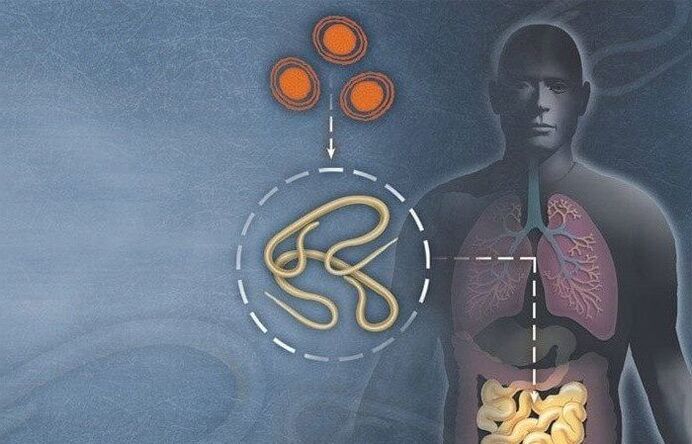
During the consultation, you will be able to articulate your problem, the doctor will clarify the situation, decipher the tests, answer your questions and make the necessary recommendations.
I want to attract the attention of people who want to be treated on their own. If you go to a pharmacy and ask the pharmacist: "Give me something to deworm" you are making a serious mistake - these things cannot be done. First, the pharmacist is not responsible for how you take this medicine. Second, not be responsible for the consequences. Third, you can hurt yourself a lot. Don't do that. To determine if you have a parasitic infection, it is very important to contact a specialist, go through several research lists and only then undergo an appropriate course of treatment.
What tests will show the presence of parasites in the human body?
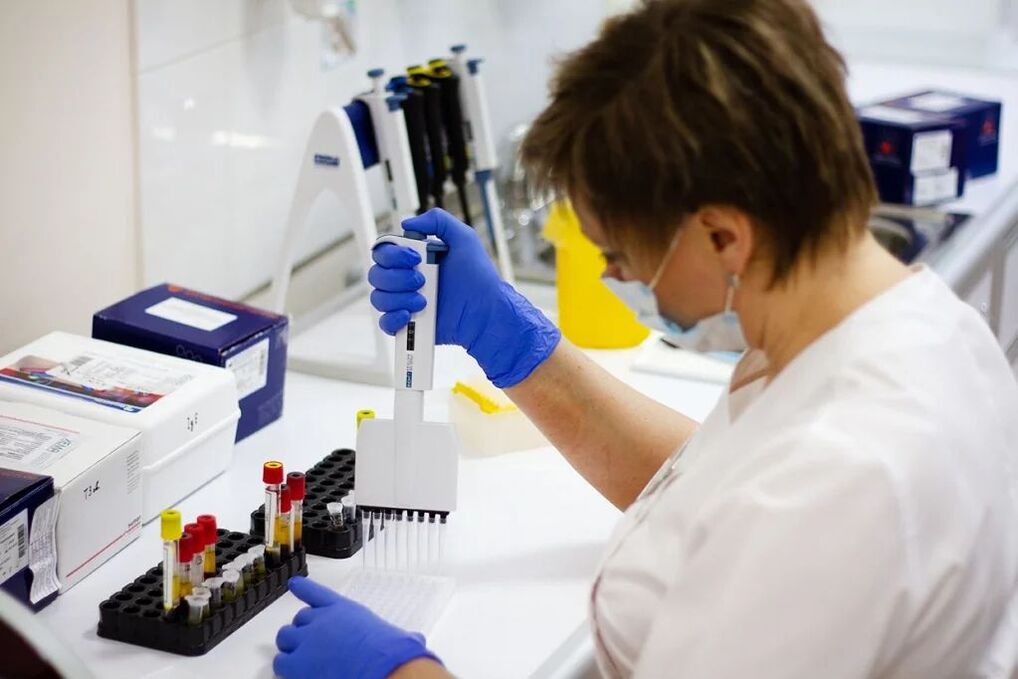
According to WHO statistics, around 4. 5 billion people in the world are constantly infected with parasites. This situation is complicated by the fact that diagnosing a parasitic infection is very difficult. How to detect if there are parasites in the body? What laboratory methods and instruments can detect parasitic diseases? Let's consider these questions in detail.
Complications
Heartworm disease caused by common parasites can be treated with medication prescribed by a doctor. But if you do not pay attention to the alarming symptoms, poor health, weakness, unreasonable fatigue, reduced immunity, the disease can lead to serious complications.
If the parasite enters the lungs and the patient does not visit the doctor with complaints of cough, shortness of breath, chest pain, shortness of breath, pneumonia or even bronchial asthma may develop.
Parasites in the digestive system can cause cirrhosis, liver abscess, hepatitis, intestinal cancer, gastrointestinal bleeding, fluid accumulation in the abdominal cavity (ascites), and peritonitis. They also often cause the development of chronic kidney disease, meningitis, loss of vision. Some cestodes (tapeworms) are more than 1 meter in length, and the small roundworms can form dense balls. This disrupts the normal functioning of the body, leading to severe intoxication, pronounced allergic reactions. Without emergency medical care, death is possible.
Prevent
Trichinosis usually occurs when hygiene rules are not followed or food is handled improperly. To prevent the entry of helminths, you need:
- Do not wear other people's underwear, do not share towels with strangers.
- Wash your hands thoroughly before eating - it's important to do this not only before breakfast, lunch, dinner, but also snacks.
- Wash your hands after going to the toilet.
- Wash your hands thoroughly after making beds and gardening with thick rubber gloves.
- Use only clean water for drinking and cooking.
- Wash fruits and vegetables thoroughly under running water.
- Eat heat-treated meat, fish, and seafood.
- Do not buy goods at spontaneous markets, of individuals who cannot confirm the safety of goods.
- Monitor the health of pets, deworm regularly even when pets live in the apartment and do not go out. For medication selection and dosage calculations, contact your veterinarian.
- Maintain cleanliness in living and working areas. Sometimes people put worm eggs in the soles of their shoes. To reduce the risk of infection, you need to regularly perform wet cleaning, disinfecting all surfaces.
Even by following these rules, the risk of infection cannot be completely eliminated. To prevent the development of the disease, consult a specialist. Your doctor will prescribe medication to prevent helminthiasis. Remember to tell us how often you travel, whether with pets in the house, a personal plot. Antihelminthic drugs are recommended to be taken 2 times a year.
















































